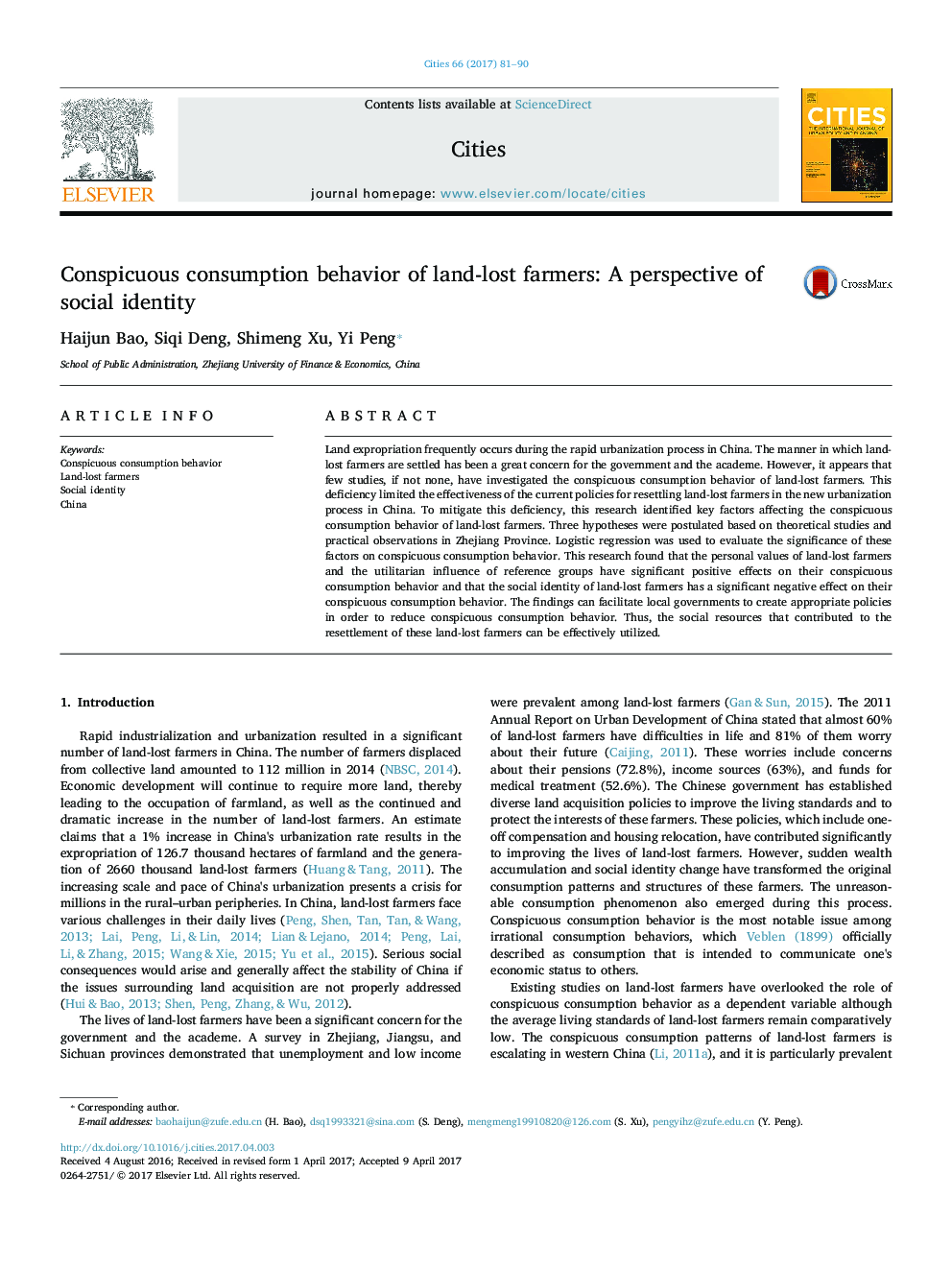| Article ID | Journal | Published Year | Pages | File Type |
|---|---|---|---|---|
| 5108080 | Cities | 2017 | 10 Pages |
Abstract
Land expropriation frequently occurs during the rapid urbanization process in China. The manner in which land-lost farmers are settled has been a great concern for the government and the academe. However, it appears that few studies, if not none, have investigated the conspicuous consumption behavior of land-lost farmers. This deficiency limited the effectiveness of the current policies for resettling land-lost farmers in the new urbanization process in China. To mitigate this deficiency, this research identified key factors affecting the conspicuous consumption behavior of land-lost farmers. Three hypotheses were postulated based on theoretical studies and practical observations in Zhejiang Province. Logistic regression was used to evaluate the significance of these factors on conspicuous consumption behavior. This research found that the personal values of land-lost farmers and the utilitarian influence of reference groups have significant positive effects on their conspicuous consumption behavior and that the social identity of land-lost farmers has a significant negative effect on their conspicuous consumption behavior. The findings can facilitate local governments to create appropriate policies in order to reduce conspicuous consumption behavior. Thus, the social resources that contributed to the resettlement of these land-lost farmers can be effectively utilized.
Keywords
Related Topics
Social Sciences and Humanities
Business, Management and Accounting
Tourism, Leisure and Hospitality Management
Authors
Haijun Bao, Siqi Deng, Shimeng Xu, Yi Peng,
